Understanding HTTP Error Messages HTTP error messages are related to the HTTP status codes which are included in the response headers when pages are requested from the Web server. HTTP status codes are three digit numbers. HTTP status codes are categorized into the following categories: Informational (1xx): This category is used for testing, and is not used for production Web servers. Successful (2xx): Indicates that requests were successfully received. Redirection (3xx): Indicates that the client needs to perform additional steps for his/her request to be serviced. Client Error (4xx): Indicates Read More
Securing Web Servers
Web Server Security Issues Internet Information Services (IIS) is the Microsoft Web server provided in each Windows Server 2003 Edition. Internet Information Services (IIS) 6.0 was designed as the solution for intranets, extranets, and the Internet. Through IIS, organizations can implement Web sites and applications, and Web services. IIS supports Secure Sockets Layer (SSL) version 3. SSL is used to encrypt HTTP and NNTP authentication data and transmission data through public key cryptography. IIS also supports Transport Layer Security (TLS), which is used to encrypt SMTP data transmissions. Basic security Read More
Inheritance
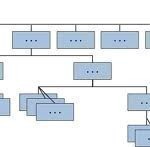
Inheritance is what happens when a subclass receives variables or methods from a superclass. It is also when one class passes down its properties to another class. The main reason for inheritance is reusability. Distinguishing a new class from an existing class is called derivation. The old class is referred to as the base class and the new class is called a derived class or sub class. The derived class inherits some or all of the traits from the base class. A class can also inherit properties from more than Read More
MMCX

The MMCX connector, or MicroMate, is a type of RF connector used with coaxial cables. Like its predecessor, the MCX connector, the MMCX connector is a very small connector, designed for the high frequency range. MMCX connectors can carry information in ranges up to 6 GHz, and were designed to meet the requirements set forth by the European CECC 22000 specification. Known as a type of micro-miniature connector, the MMCX connector is more flexible and more stable than the original MCX connector. It is currently the smallest connector available on Read More
OCR (Optical Character Recognition)
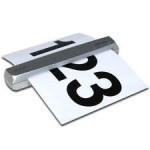
OCR is an advanced technology that allows people to alter different sorts of documents including scanned paper documents, PDF files or pictures captured by a digital camera into editable and searchable data as well. Basically, OCR stands for “Optical Character Recognition” and is used to regulate big volumes of legal papers. When people scan any document it’s stored in form of an image, which can’t be edited. Whilst OCR has made it possible to scan any printed document and relocate it into word-processing software, such as MS word where you Read More
How to Open .MIX Files
“How do I open .MIX files?” This question may arise whenever someone sends a file with an .MIX extension. There are three types of .MIX files: those for MS Windows Sound MIX, those for Power C object files, and image files. Typically, the image file is the cause of confusion for most computer users. Opening .MIX Files Here are two methods that can be used to battle the problem: Method 1 Save the file as a web page by following these simple procedures. The first method works best for users Read More
NTLDR
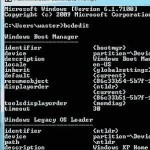
A boot loader is a special program whose purpose is to load other software and files that are required to bring the computing system into a ready-to-run state. NTLDR is an abbreviation for New Technology Loader, and it is the boot loader for all the releases of Microsoft’s Windows NT operating system up to Windows Server 2003 and Windows XP. In Windows Server 2008 and Windows Vista and Windows 7, NTLDR has been replaced by Windows Boot Manager and winload.exe. A boot loader usually resides in the nonvolatile portion of Read More
CSS (Content Scrambling System)
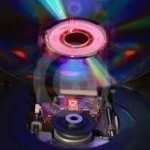
The Content Scrambling System, or CSS, is a Digital Rights Management, or DRM, encryption system that encrypts data on commercially-available DVDs and prevents users from copying the disc’s data to a computer file or another disc. The Content Scrambling System is also used to require all media player manufacturers to produce devices that are compatible with the Content Scrambling System because the encrypted discs will not stream to a non-compatible device. How A Content Scrambling System Works The Content Scrambling System depends on three keys and a process known Read More
Radio Frequencies and their Corresponding Purposes
The Federal Communications Commission (FCC) licenses the frequency spectrum in the United States. Useful charts showing frequency allocations are available from the National Telecommunications and Information Administration (NTIA) at http://www.ntia.doc.gov/osmhome/allochrt.html. This table shows commonly used names for various frequency ranges: Frequency Description 30 – 300 GHz Extremely High Frequency 3 – 30 GHz Super High Frequency 300 MHz – 3 GHz Ultra High Frequency (UHF) 30 – 300 MHz Very High Frequency (VHF) 3 – 30 MHz High Frequency (HF) 300 KHz – 3 MHz Medium Frequency 30 KHz – Read More
What is a Diopter?
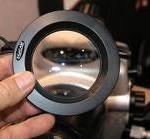
A diopter is a lens that bends light in order to magnify an object. Diopters can be used to enlarge small objects or see across far distances and are generally integrated into other objects in order to maximize efficiency and accessibility. A diopter can also refer to a measurement that describes a lens’s optical power and measures the maximum distance that a lens is capable of viewing an object from. How Diopters Work A diopter (lens) is a transparent piece of glass or plastic that bends light inward or outward Read More


Share on: